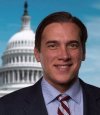
For the Democrats whose entire political party and political philosophy is based on an all-powerful central government in Washington, D.C. to quickly pirouette into stalwart defenders of states’ rights is astonishing. It is reflective of the Trump Derangement Syndrome in which anything Donald Trump is for, the afflicted must be against, and vice versa.
President Trump – rightly or wrongly – is not the first American chief executive to challenge the power of state governments. Someone named Abraham Lincoln did that 160 years ago which led to a brutal fratricide known as the American Civil War. Lincoln refused to allow the Confederate States of America to secede from the Union, even though there was nothing in the Constitution specifically prohibiting such an action. President Eisenhower sent federal troops into Little Rock in 1957 to enforce court-ordered school desegregation. President Kennedy did the same when he nationalized the Alabama National Guard in 1963 to force Governor Wallace to allow the entry of black students to the University of Alabama.
Throughout the Civil Rights Revolution of the 1960s and the busing crises of the early 1970s, numerous examples abound of the federal government – either the executive or the courts – intervening to stop state governments – especially in the South – from obstructing desegregation orders and all but seizing control of local school systems.
Today, as we battle the pandemic, governors from coast-to-coast are claiming extraordinary powers to order residents to stay home, close businesses, schools, and churches, and restrict travel and movement. People are being arrested for walking in the park, paddling alone in a river, not wearing a mask, or attending a drive-through Easter service. Is this America? And, do the governors have the right to do any of this?
As Constitutional scholar Mark Levin points out, President Trump did not shut down anything. The governors did that. All the President did was an issue some recommendations for mitigation and social distancing. Power-hungry Democrats like Governor Whitmer of Michigan have behaved as authoritarian autocrats in their zeal to place their states under house arrest. How can they get away with it?
First of all, the Supreme Court long ago settled the question as to whether the federal Bill of Rights applies to the states. It does. This means that governors who continually attempt to restrict public activity may already violate several Amendments of the Bill of Rights, most glaringly the First Amendment which prohibits restrictions on speech, assembly, or freedom of religion.
How about the Fifth Amendment which prohibits taking private property for public use without just compensation? Is not the requirement to close so-called “non-essential” businesses ( as determined by who exactly? ) taking of a business owner’s property without reimbursing him for his lost revenue and income? Isn’t jailing someone sitting alone on the beach a violation of the Fourth Amendment which asserts “the right of the people to be secure in their persons, houses, papers, and effects, against unreasonable searches and seizures…”?
Finally, how about some governors shutting down gun stores? Doesn’t that infringe on Second Amendment rights, especially at a time when cities, counties, and states are releasing prisoners from jail?
Mark Levin points out that state actions to close businesses are most likely violations of the Interstate Commerce Clause of the Constitution. Congress, not the states, has jurisdiction over interstate commerce. And, ever since the New Deal of the 1930s, the Supreme Court has adopted an extremely broad interpretation of federal authority over this issue. Most economic activity within a state is going to impact, in some way, economic activity and commerce in another state.
Think of it this way. A restaurant in California buys meat from a meatpacker in Iowa or buys meat from a distributor within the state of California who in turn buys it from that same meatpacker in Iowa.
Closing that restaurant impacts interstate commerce! As Levin puts it:
"States have the power to regulate commerce within their boundaries, but the Congress under the federal Constitution is the only body that has the power to regulate interstate commerce. Governors, through their dictates and their fiats of what's essential and not essential, shutting down businesses -- that's the ultimate regulation. If it affects interstate commerce in a very negative way, the president can enforce the Interstate Commerce Clause of the Constitution, where governors do not have the power to control interstate commerce. The state's police powers do not extend to interfering with interstate commerce. The clause was explicitly put in the federal Constitution to promote commerce nationwide."
One of the main reasons the Articles of Confederation failed in America’s early years related to this very issue of interstate commerce. States were levying tariffs and other trade barriers against each other, making unity impossible. The Founding Fathers then scrapped the Articles as unworkable and ratified the Constitution instead.
Governors like Cuomo, Whitmer, and Newsom are skating on thin ice, both in a practical sense and in a Constitutional sense. They cannot lock down their states indefinitely. Constitutional rights are being violated, civil liberties are being infringed on. They are sworn to uphold those rights and liberties. It is time for them to stop playing politics with people’s lives and livelihoods, stop acting like petty despots, and stop using this crisis as a way to defeat President Trump in the upcoming election. Open America now!
Dr. James Veltmeyer is a prominent La Jolla physician voted “Top Doctor” in San Diego County in 2012, 2014, 2016, 2017, and 2019.